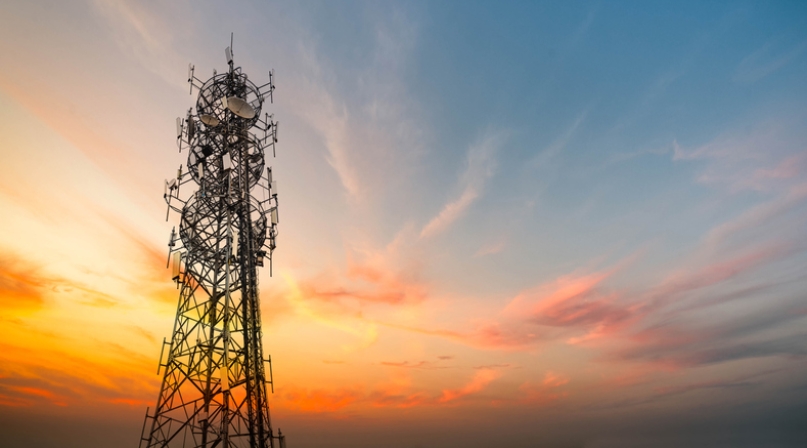FCC considers preemption of local authorities in broadband permitting process
Author

Seamus Dowdall

Emma Conover
Upcoming Events
Related News

Key Takeaways
January 15 Update: On January 15, NACo submitted reply comments to the Federal Communications Commission (FCC) on the "Build America: Eliminating Barriers to Wireless Deployments" Notice of Inquiry, alongside the United States Conference of Mayors (USCM), the National League of Cities (NLC) and the National Association of Telecommunications Officers and Advisors (NATOA). Read the reply comments here.
December 31 Update: On December 31, NACo submitted comments to the FCC on the "Build America: Eliminating Barriers to Wireless Deployments" Notice of Inquiry. NACo submitted comments alongside USCM, NLC and NATOA. Read the comments here.
December 18 Update: On December 18, NACo submitted reply comments to the FCC on the "Build America: Eliminating Barriers to Wireline Deployments" alongside USCM, NLC and NATOA. Read the reply comments here.
November 17 Update: On November 17, NACo submitted comments on the "Build America: Eliminating Barriers to Wireline Deployments" alongside USCM, NLC and NATOA. NACo and other stakeholders additionally submitted a letter for the record to Congress in opposition to legislation that would codify many of the local permitting preemptions outlined in the FCC proceeding.
September 30 Update: On September 30, the FCC issued notices of inquiries (NOIs) on Accelerating Wireline Infrastructure Buildout and Eliminating Barriers to Wireless Deployments. The NOIs explore whether the FCC should implement the following preemptions of local authority in wireless and wireline telecommunication deployments:
- Establishment of new shot clocks, and codification of existing shot clocks, including on the construction of new infrastructure and modification of existing infrastructure.
- Consideration of establishing a “deemed approved” provision, which would consider a telecommunications project to be approved if not acted upon by a locality within a specified time frame.
- Preemption on a locality’s ability to assess fees that are responsive to the varying size and scope of telecommunications projects.
The proceedings at the FCC come as Congress is considering legislation to streamline the deployment of broadband and preempt state and local authorities on telecommunications infrastructure. Read more about those bills here.
In both the Notice of Inquiry titled Build America: Elimination Barriers to Wireless Deployments and the Notice of Inquiry titled Build America: Eliminating Barriers to Wireline Deployments, the FCC seeks comment on various topics related to several important provisions in communications law and policy, including:
- Section 6409(a) of the Spectrum Act, which prohibits State and Local governments from denying any eligible facilities request for a modification of an existing wireless tower or base station that does substantially change the physical dimensions of such tower or base station.
- Sections 253 and 332(c)(7) of the Telecommunications Act of 1996, which prohibit state and local governments requirements that prohibit or have the effect of prohibiting the ability of any entity to provide any interstate or intrastate telecommunications service.
- The 2018 Small Cell Order, which was an FCC rulemaking proceeding which established shot clocks and other limitations on local government authority with respect to the construction, placement and modification of small personal wireless devices
With respect to Section 4609(a), the FCC is exploring whether to take the following actions under its wireless proceeding:
- Codifying the definition of a concealment element, and what might constitute a defeat of a concealment element.
- Codifying that siting approval conditions cannot be used to prevent modifications that are allowed under existing Commission rules.
- Disallowing time-limited conditional use permits (CUPs) that allow a locality to deny a proposal to modify existing tower and wireless base stations.
With respect to Section 253 and 332(c)(7), the FCC is seeking comment on whether to take action under its wireless proceeding that would:
- Apply the 2018 Small Cell Order provisions to the construction, placement and modification of macro cell towers, and define herein what constitutes a macro cell tower (i.e. any wireless device outside of a small cell).
- Codify existing shot clocks on wireless facilities, clarify and codify the timeline for a shot clock (i.e. beginning at the point of application, and not being subject to tolling, unless the locality provides a response within 30 days on the incompleteness of an application or within 30 days on an application’s lack of submitting all necessary documents) and consider the adoption of a deemed granted provision.
- Assess disproportionate or otherwise unreasonable fees and determine if the Commission should adopt a standardized fees model based on the 2018 Small Cell Order that is based on “reasonable” fees that a locality can assess.
- Condition approval on aesthetic requirements or similar criteria.
- Impose other regulatory impediments, such as time-limited CUPs.
Under the wireline proceeding, the FCC is examining whether to take action to:
- Clarify that certain forms, methods or types of project authorization required at the local level constitute a violation of Section 253
- Establish shot clocks on authorizations required for providers to access the rights-of-way.
- Establish that only cost-based fees are permitted to be charged by local governments on wireline providers under Section 253
- Whether local franchise agreements or agreements that involvement in-kind contributions constitute a violation of Section 253
The FCC is also considering whether alternative dispute resolution bodies or procedures outside of litigation may be worth pursuing.
What’s next?
NACo plans to file comments throughout the comment cycles for both NOIs, and NACo will continue to monitor developments in Congress. NACo urges members to reach out to share feedback on the impact that preemption would bring if enacted.
Webinar
National Membership Call: Local Preemptions in Broadband Permitting Bills
Join NACo staff for an overview of H.R. 3557, a bill which would enact newly expanded preemptory measures in local land use and zoning authorities pertaining to the streamlined deployment of telecommunications infrastructure.
